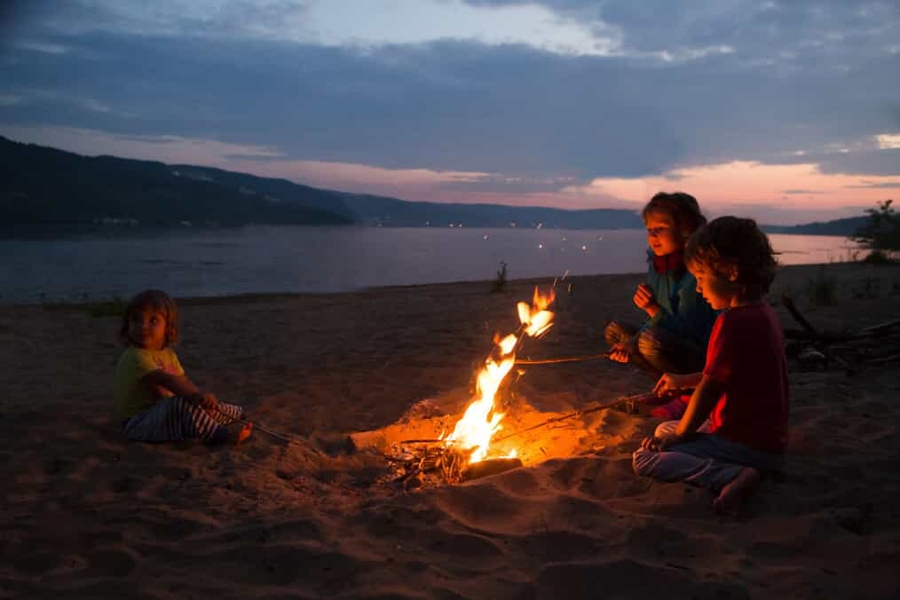04 December 2019, Doha, Qatar – Every year, during camping season, children and teens across Qatar develop camping related injuries.
Dr. Usama Al Kanani, Attending Physician from the Children’s Emergency Department (CED) at Sidra Medicine said: “We have started to see more children coming to our Emergency Department with camping-related injuries either sustained at the camp site or on the motorway while on the journey to or back from camp. The most serious injuries in teenagers are those related to four-wheel bikes, also known as All Terrain Vehicles (ATV).”
“In untrained hands and without safety measures, an ATV can cause serious injuries to the head, extremities, neck or abdomen. We have seen cases of children who were ejected from the bike or with broken bones or internal injuries because the ATV rolled over on to them. These children have to undergo multiple imaging while at the CED and be admitted as in-patients to ensure we monitor their progress,” continued Dr. Al-Kanani.
Other common camping related pediatric injuries reported to the CED include:
- Injuries as a result of children not using a car seat
- Burns from camp fires or mishandling equipment
- Foot injuries after stepping on sharp objects like stones or thorns while bare feet
- Spider, snake or scorpion bites
- Fractures or sprains as a result of tripping, slipping or falling down
- Water related injuries through submersion underwater by near drowning or being stung by jellyfish
- Dehydration due to sun exposure or not drinking enough water
- Carbon Monoxide poisoning
While not all injuries are equally dangerous, some severe injuries can lead to long term impairments or death. Parents need to ensure their children are protected from head injuries, which is also quite common among young campers who are more likely to become off-balance easily. Parents are advised to think carefully about protective equipment for their children such as helmets, proper shoes and clothing before they head out camping.
For a safer camping experience, the Emergency Department at Sidra Medicine shares some tips for parents:
- Always wear your seat belt and make sure your children are security strapped in.
- ATVs are meant to be driven by trained children over the age of 12 only and not on the motorway and young drivers should be supervised at all times by an adult. Always make sure your child is wearing a helmet as well as long sleeved clothes.
- Take first aid kits with you to help manage simple injuries. Pack eye drops and pain killers such as children’s ibuprofen or paracetamol.
- Make sure to drink enough water and avoid staying in the sun for too long.
- Always keep your children at a safe distance from the fire especially when lighting the fire and using flammable liquids.
- An adult, with good swimming skills, should always be present when children are swimming.
- Check the tide reports and wind advisories before you head out camping.
- Always shake out shoes in the morning – not only for sand but scorpions often like to crawl into shoes overnight.
- Keep your mobile with you to call 999 in case of an emergency.
“If your child sustains burns, then apply cold water (NOT ice water) for at least 30 minutes to the area. Do not put any creams, oils, tooth paste or other products, just water. Give the child some analgesia like paracetamol or ibuprofen, and then head to the nearest Emergency Department,” advised Dr. Al-Kanani.
Poisonings are also very common during the camping season and can be caused by various types of envenomation or smoke inhalation in poorly ventilated tents. Sidra Medicine has a free national poison helpline through its Qatar Poison Center– 40031111 - for poisoning treatment consultation for both children and adults. The free service is available from 9.00 a.m. to 1.00 a.m. seven days a week, and should be contacted for all poisonings.
Dr. Leena Amine, Manager of the Qatar Poison Center said: “If your child has been bitten by a snake or spider or stung by a scorpion or by jellyfish, we strongly recommend calling the Qatar Poison Center. The hotline will advise on appropriate first aid and treatment of each case.”
Dr. Amine shared some tips for parents regarding the three most common poisonings:
- If your child is bitten by a snake or stung by a scorpion, seek immediate medical attention. The Qatar Poison Center will be able to guide you with some immediate steps before you head to the emergency department or while waiting for an ambulance. Important things to consider are to immobilize the injured limb or body part. Remove shoes and tight clothing from the affected limb.
Do not use a tourniquet or any form of suction: i.e., trying to suck the venom out. Also, do not apply heat, cold, electricity, or any substances to the bite. If possible, take a picture of the snake or scorpion from a safe distance, or try to remember the colour and shape so you can describe it. This will help with treatment.
- Most jellyfish stings cause minor injury only and can be safely managed on site without emergency care. The Qatar Poison Center can provide you with the most appropriate first aid instructions.
- Carbon monoxide is a colorless, odourless, tasteless gas which can cause severe poisoning and even death. This can happen if charcoal, wood, a gas stove or non-electric heaters, kerosene lamps or shishas are used inside closed tents without proper ventilation. Be aware of suggestive symptoms, including a dull headache, weakness, dizziness, vomiting, nausea, confusion, blurred vision or loss of consciousness. Seek medical attention immediately.
The team at Sidra Medicine would like to wish everyone a happy and safe winter camping. For more details about the Children’s Emergency Department or the Qatar Poison Center, visit www.sidra.org.
Read the Arabic press release here.
- ENDS -


